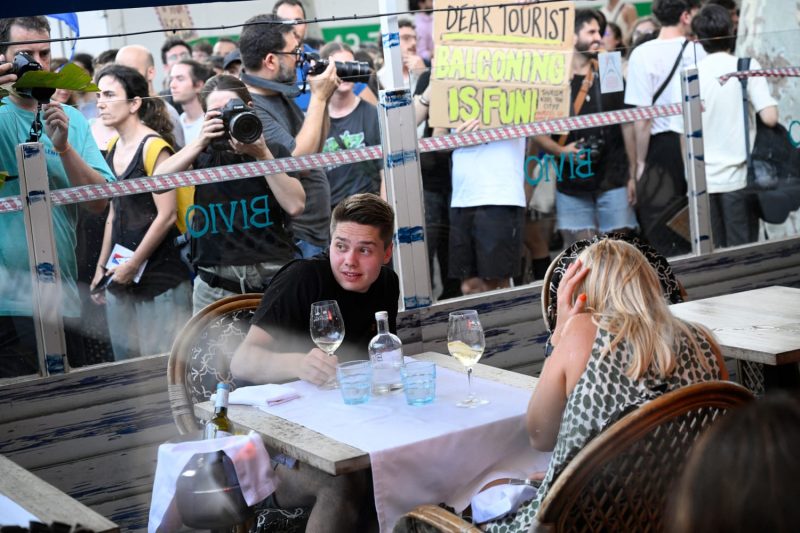The recent protests in Barcelona have shed light on the complex relationship between locals and tourists in one of Europe’s most popular travel destinations. The confrontational scenes of protesters throwing items and spraying travelers with water while shouting tourists go home have sparked debate about the impact of mass tourism on the city and its residents.
The protests, which took place in areas heavily frequented by tourists such as the Gothic Quarter and La Barceloneta, have highlighted tensions that have been simmering for years. Barcelona has become a victim of its own success, attracting millions of visitors each year drawn to its vibrant culture, stunning architecture, and beautiful beaches. However, the influx of tourists has brought with it a host of challenges for locals, from rising housing prices to overcrowding and environmental degradation.
One of the main grievances of local residents is the transformation of their neighborhoods into tourist hotspots, with shops selling cheap souvenirs replacing traditional businesses and rental apartments driving up property prices. Many residents feel that they are being priced out of their own city, as landlords prefer to cater to short-term rentals for tourists rather than long-term tenants. This has fueled resentment and frustration among locals, leading to the anti-tourism sentiment that was on display during the recent protests.
The protesters have also raised concerns about the impact of mass tourism on the city’s infrastructure and environment. The increase in tourist numbers has put a strain on public services such as transportation, waste disposal, and water supply, leading to overcrowding and overuse of resources. Barcelona’s beaches, in particular, have been heavily affected by tourism, with pollution and overcrowding threatening the delicate coastal ecosystem.
While tourism plays a vital role in Barcelona’s economy, contributing significantly to job creation and revenue generation, many residents argue that the costs outweigh the benefits. The protests serve as a wake-up call for city officials and policymakers to address the issues raised by locals and work towards a more sustainable tourism model that balances the needs of residents and visitors alike.
In response to the protests, Barcelona’s city council has announced plans to regulate tourist accommodation and crack down on illegal rentals, in an effort to curb the negative impacts of mass tourism. The city has also implemented measures to promote responsible tourism and encourage visitors to respect the local culture and environment. By fostering a more sustainable and inclusive tourism industry, Barcelona hopes to address the grievances of its residents and preserve the unique character of the city for future generations.
As Barcelona grapples with the challenges posed by mass tourism, the recent protests serve as a reminder of the importance of striking a balance between economic growth and social well-being. By listening to the concerns of locals and adopting policies that prioritize the needs of residents, Barcelona can ensure that it remains a welcoming and vibrant destination for visitors from around the world, while also preserving the quality of life for those who call this city home.


























